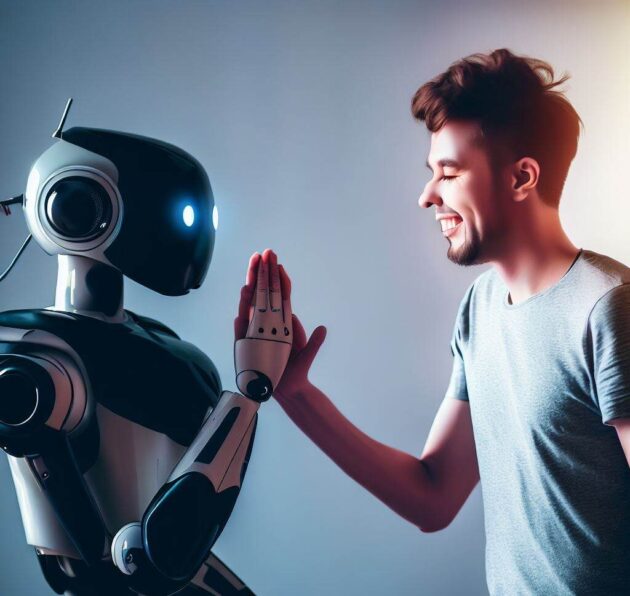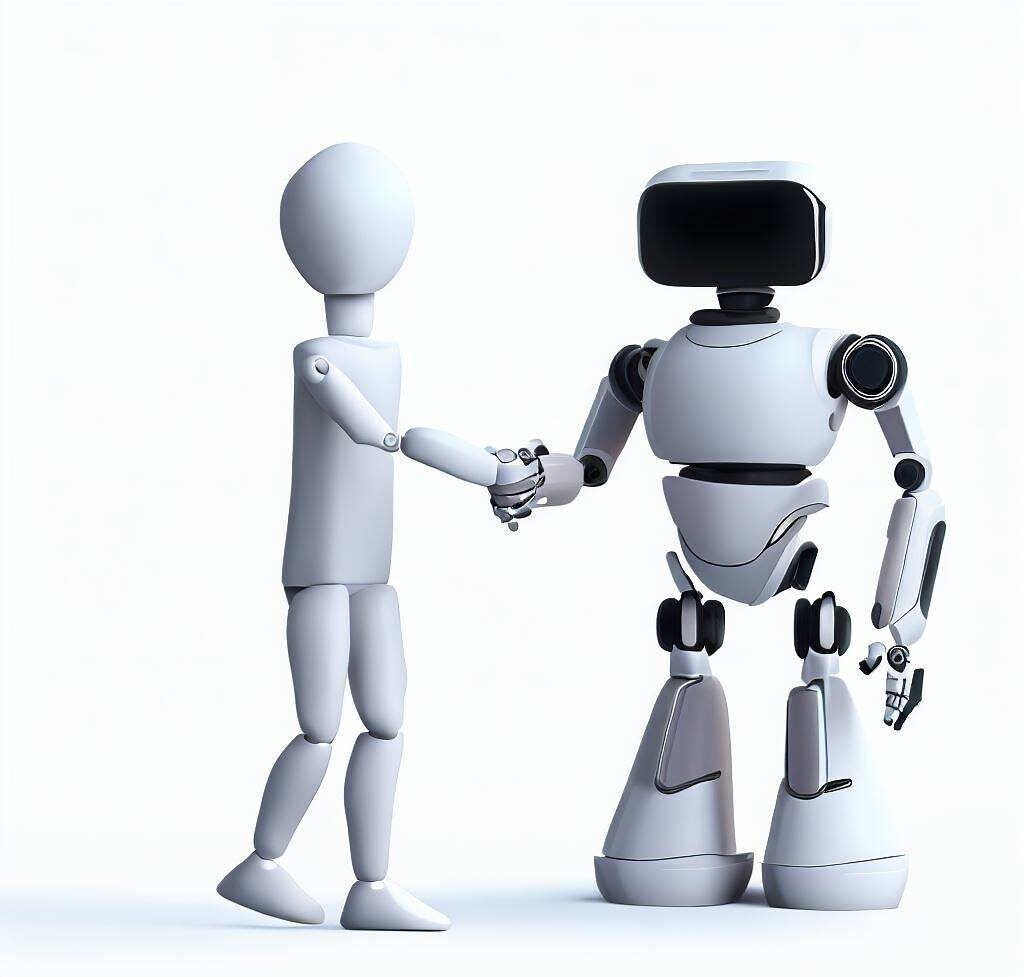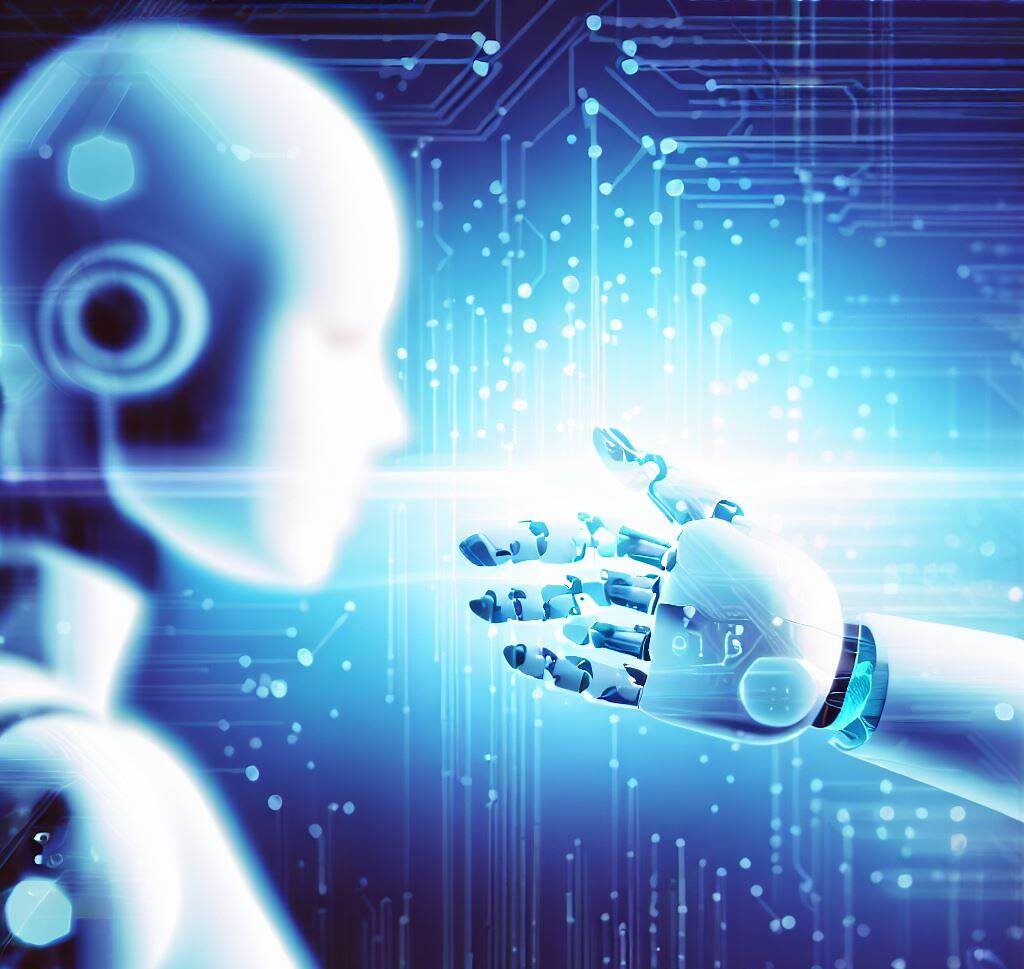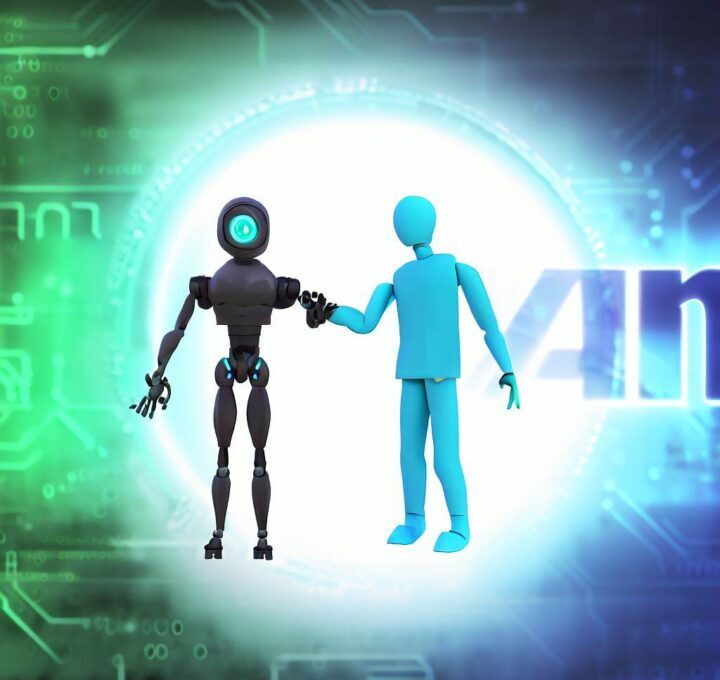Artificial Intelligence (AI) has made significant advancements, transforming industries and automating tasks once thought to require human intelligence. However, despite its rapid growth, AI will not replace humans entirely. Why? Because AI lacks human creativity, emotions, ethical reasoning, and the ability to make complex, value-driven decisions. While AI can assist and enhance our capabilities, it cannot replicate human intuition, empathy, and adaptability. Instead of replacing humans, AI is more likely to act as a powerful tool that complements human intelligence, helping us innovate and solve complex problems efficiently.
Reason ai not replace the jobs of human

AI has the potential to automate many tasks and processes, which can lead to concerns about job displacement. However, whether or not AI will completely take over human jobs is a complex and nuanced topic. Here are a few reasons why AI may not entirely replace human jobs:
- Complementary roles: AI technology is often designed to work alongside humans rather than replace them entirely. AI systems can augment human capabilities, enabling individuals to focus on higher-level tasks that require creativity, critical thinking, and emotional intelligence. This can lead to the creation of new job roles and opportunities.
- Limitations in human-like understanding: While AI has made significant advancements in natural language processing, machine learning, and pattern recognition, it still lacks the comprehensive understanding and context that humans possess. Jobs that involve complex decision-making, creativity, empathy, and social interactions are difficult for AI to replicate.
- Ethical considerations: Certain jobs require ethical judgment, compassion, and empathy, which are deeply ingrained in human nature. Roles in healthcare, counseling, social work, and customer service often require a human touch and emotional connection that AI struggles to emulate.
- Adaptability and versatility: Humans possess a unique ability to adapt to new and unpredictable situations. They can learn and acquire new skills, switch job roles, and apply their knowledge in various contexts. AI systems, on the other hand, are designed for specific tasks and may struggle with adaptability.
- Socioeconomic impact: Widespread job automation could have significant socioeconomic consequences, such as increased income inequality and unemployment rates. Governments and organizations are aware of these concerns and often strive to strike a balance between technological advancement and societal well-being.
Certainly! Let’s consider the example of customer service representatives in the context of AI automation:

Customer service representatives are often responsible for addressing customer inquiries, resolving issues, and providing support. With the advancements in AI, chatbots and virtual assistants have become common tools for customer interactions. These AI systems can handle routine and repetitive customer queries, such as basic troubleshooting or providing information about products and services.
However, there are limitations to AI-powered chatbots. They may struggle to understand complex customer concerns, interpret nuanced emotions, or provide personalized solutions. Here’s where the complementary roles between AI and humans come into play:

- Escalation and complex issues: When a customer has a more intricate or emotionally charged problem, the chatbot can recognize the need for human intervention and escalate the conversation to a customer service representative. The human representative, with their empathy and problem-solving skills, can step in to address the issue effectively, provide personalized support, and offer a human touch.
- Emotional intelligence and empathy: Dealing with frustrated or upset customers requires emotional intelligence and empathy. While AI can be programmed with predefined responses, it often falls short in understanding and appropriately responding to complex emotions. Human representatives can empathize, listen actively, and offer solutions tailored to the customer’s specific situation, creating a positive customer experience.
- Adaptive problem-solving: Some customer issues may involve unique or unprecedented scenarios that require creative problem-solving. Humans possess the ability to think outside the box, adapt to new situations, and come up with innovative solutions. They can draw on their past experiences, knowledge, and critical thinking skills to address complex challenges, which AI systems may struggle with
FAQ’s
1. Will AI take over all human jobs?
No, AI will automate repetitive tasks but will not replace jobs requiring creativity, emotional intelligence, problem-solving, and human interaction. Instead, AI is expected to create new job opportunities.
2. Can AI replace human intelligence?
AI can process vast amounts of data quickly, but it lacks critical thinking, ethical reasoning, and consciousness. Human intelligence involves emotions, experience, and moral judgment, which AI cannot replicate.
3. Is AI dangerous for human employment?
AI may shift the job market by automating certain roles, but it will also generate new industries and career paths. Human workers will remain essential for managing, designing, and improving AI systems.
4. Will AI replace human creativity?
No. AI can generate content based on patterns, but it cannot create original ideas, emotions, or innovative concepts like humans. Human creativity remains unmatched.
5. Can AI make ethical decisions?
AI follows programmed rules and data-driven models but cannot make ethical or moral decisions like humans. Ethics requires context, emotions, and deep understanding, which AI lacks.
6. Should we fear AI replacing humans?
Instead of fearing AI, we should focus on responsible development and collaboration between AI and humans. AI is a tool meant to enhance productivity, not replace humanity.
7. How can humans and AI work together?
Humans can leverage AI for automation, data analysis, and efficiency while making final decisions based on intuition, experience, and emotional intelligence. This partnership improves productivity and innovation.





